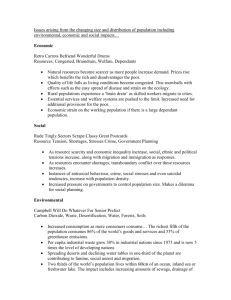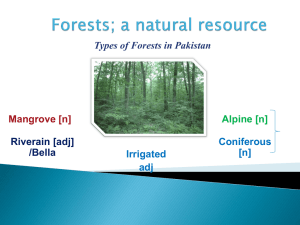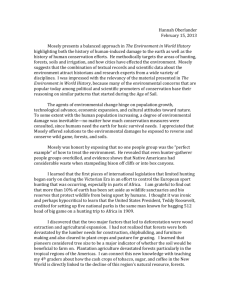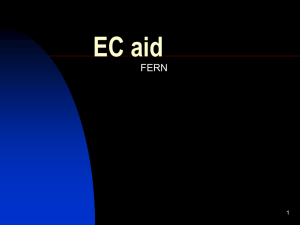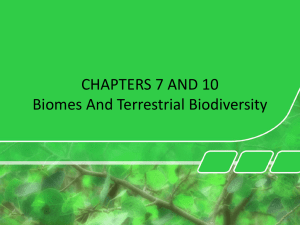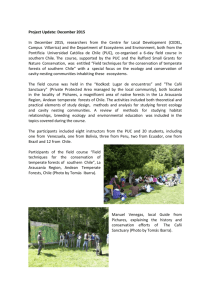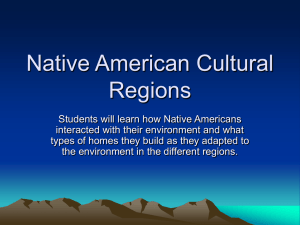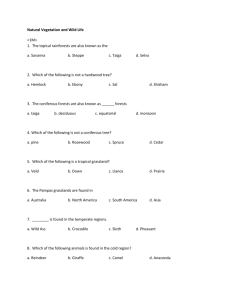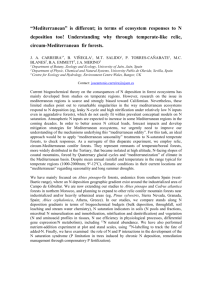Forest Soils
advertisement
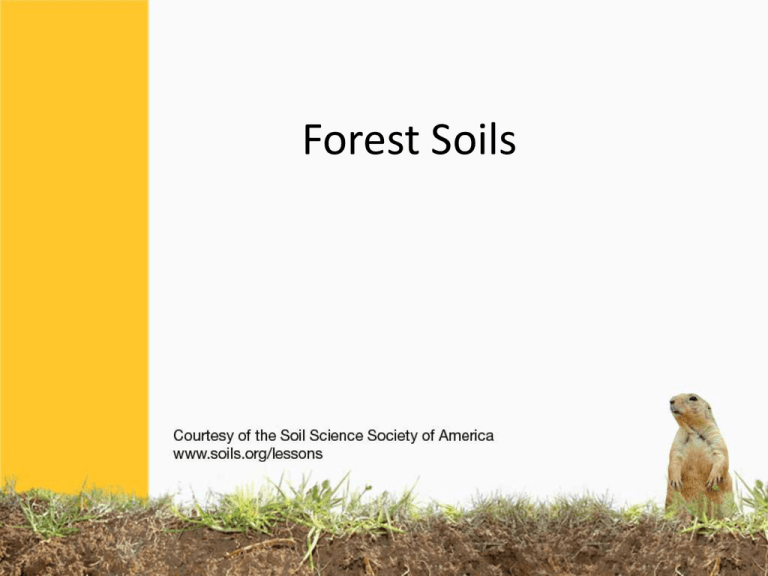
Forest Soils Forests used to cover the Eastern half of the United States, and most of southern Canada. Most forests are not too hot, or not too cold, and have moderate amounts of precipitation. ALFISOL Moderately Weathered SPODOSOL Sandy, Acidic There are two main types of forests. Pine forests have ashy white layers (E horizons) and are called Spodosols. Deciduous forests have soils called alfisols, and are not as leached. But clay accumulates in the SUBSOIL. There are a lot of organisms in the woods. Like salamanders, chipmunks, squirrels, and deer. There are a lot of TREES, mosses, fungi and bacteria. The BIGGEST organism on the Earth is actually a FUNGUS in a temperate forest! Can you think of a place that relief would be steep? Forests are Important to the Carbon Cycle CO2 from Atmosphere CO2 from Respiration CO2 from Respiration CO2 from Respiration Tree Roots Bacteria Worms Soil Carbon from Living Sources Fallen Leaves Animal Waste Dead Animals Soil Carbon from Dead Sources Temperate forests store carbon in trees and soils, which keeps it from being released into the air. CLEAR CUTTING is removing all trees at once. Why could this be a problem? FORESTS are FILTERS. PLANTS and SOILS work together to remove germs, extra nutrients, and other pollutants from the WATER. Vocabulary • • • • E Horizon (eluviated) Subsoils Fungus Leaching Vocabulary • Spodosols – acidic, sandy forest soils under conifers • Alfisols - moderately leached soils often found in temperate forests • Respiration – animals breathing in and out generate carbon dioxide • Carbon dioxide – a greenhouse gas
